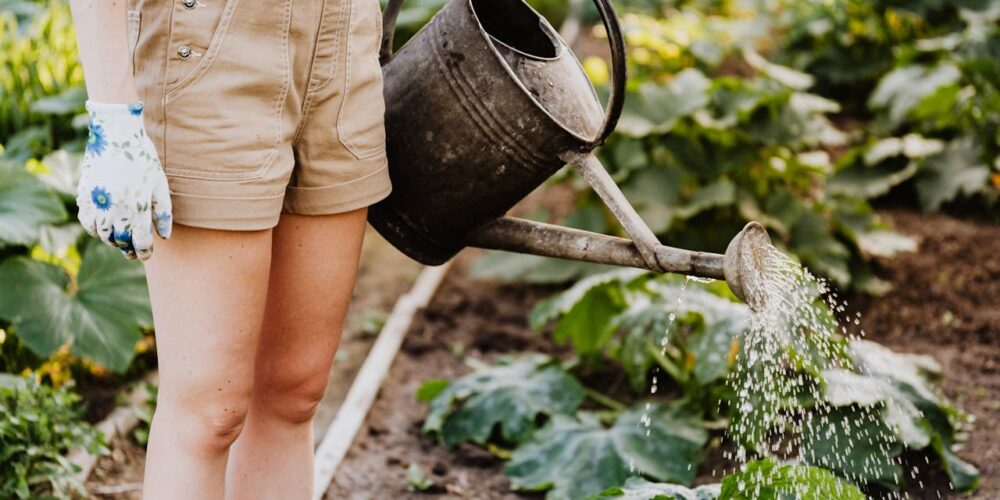
What are the Advantages of Growing your own food and plants?
Gardening has been shown to lighten mood and lower levels of stress and anxiety. It’s very gratifying to plant, tend, harvest and share your homegrown food. Routines provide structure to our day and are linked to improved mental health. Gardening routines, like watering and weeding, can create a soothing rhythm to ease stress.
8 Surprising Health Benefits of Gardening
Planting flowers and vegetables can reap bountiful bouquets and delicious harvests for your dining table. But did you know gardening also can do wonders for your well-being? Here are eight surprising health benefits of gardening.
1. Gardening can build self-esteem.
Maybe you don’t think you were born with a green thumb, but after tilling, planting, nurturing and harvesting plants, you might see a slightly different person in the mirror: a person who can grow things and is a little more in tune with the earth. It always feels good to accomplish new tasks, and if you can grow a garden, what can’t you do?
2. Gardening is good for your heart.
All that digging, planting and weeding burns calories and strengthens your heart. “There are physical benefits from doing the manual labor of gardening,” says UNC Health internal medicine physician Robert Hutchins, MD, MPH. “It’s hard work to garden, and it provides some cardiovascular benefit.”
3. Gardening reduces stress.
Gardening can help reduce symptoms of depression and anxiety. “Gardening gives you a chance to focus on something and put your mind to work with a goal and a task in mind,” Dr. Hutchins says, “which is helpful especially now with so much illness and death and talk of death, just to see things growing and things thriving.”
4. Gardening can make you happy.
Getting dirt under your nails while digging in the ground can make you pretty happy. In fact, inhaling the healthy bacteria that lives in soil, can increase levels of serotonin and reduce anxiety.
5. Working with your hands can improve your strength.
All that digging, planting and pulling does more than produce plants. Gardening also will increase your hand strength. What a great way to keep your hands and fingers as strong as possible for as long as possible.
6. It’s good for the whole family.
Gardening can be a solo activity or an opportunity for bonding with your family and friends. The happiness and stress relief that gardening provides is a great thing to share with loved ones. Also, gardening has special benefits for kids. Early exposure to dirt has been linked to numerous health benefits, from reducing allergies to autoimmune diseases.
7. Being outside can give you a boost of vitamin D.
A healthy dose of vitamin D increases your calcium levels, which benefits your bones and immune system. Exposure to sunlight helped older adults achieve adequate amounts of vitamin D. Just don’t forget your sunscreen. You’re more like a plant than you may realize. Your body is capable of photosynthesis — the process where plants make their own food using sunlight.
8. Growing your own food can help you eat healthier.
If you have a vegetable or herb or fruit garden, you’re getting fresh produce that you know hasn’t been treated with pesticides.
“It’s essentially as farm-to-table as it gets,” Dr. Hutchins says, “if you’re eating what you’re growing.” Gardening builds strength, promotes sleep, and helps you maintain a healthy weight.
Gardening is also exercise. Activities like raking and cutting grass might fall under the category of light to moderate exercise, while shoveling, digging, and chopping wood might be considered vigorous exercise.
Either way, working in a garden uses every major muscle group in the body. This fact won’t surprise anyone who’s woken up sore after a day of yardwork.
Studies have found that the physical exertion of working in a garden may help offset both age-related weight gain and childhood obesity.
Image by Karolina Grabowska at pexels.com

Leave a Reply